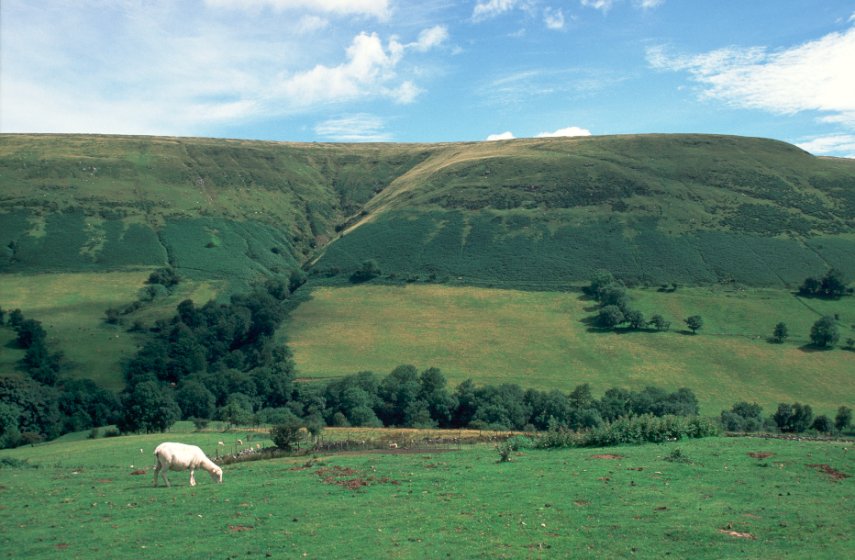
Over 20 hill sheep breeders across Wales will take part in a pioneering project looking to see how their flocks’ food production also helps boost the environment.
The environmental auditing programme, launched at the Royal Welsh Show, will evaluate where Welsh upland farming stands in terms of its green credentials, and how it can be further improved.
Using the Chartered Institute of Ecology and Environmental Management (CIEEM) Good Practice guides, specialists will carry out in-depth audits on each farm, looking specifically at the carbon and biodiversity elements.
One of the 22 Welsh hill ram breeders that has signed up to the project says he is keen to see on paper how improving his environmental credentials is benefitting Wales’ rural landscape.
Ben Williams, 29, who farms in partnership with his family at Garth Uchaf Farm on the outskirts of Cardiff says: “As Welsh farmers we have done a lot of environmental work over the years.
"Here, in Pentyrch, we’ve laid new hedgerows, planted 6,000 native trees and created small ponds. This will be our opportunity to see the fruits of our labour recognised and evidenced on paper.”
Since 2018, farmers who take part in Hybu Cig Cymru – Meat Promotion Wales (HCC)'s Hill Ram Scheme have been using DNA-based technologies to record the performance of hill flocks.
This has enabled farmers to use genetic data to breed selectively to improve farms’ commercial performance and environmental sustainability.
Heather McCalman, of HCC said: “We now want to evaluate key elements of sustainability on these upland farms including an audit of greenhouse gas emissions and a wider environmental audit that includes biodiversity.
“Our work to date has seen over 50 farmers working to select stock based on the performance records of sheep that thrive in the hill environment.
"The scheme has been very successful and we’re particularly pleased to have seven different ram breeds taking part in the scheme.”
The first phase of the project on the 22 farms will concentrate on biodiversity, where a habitat survey will be carried out at each farm to identify the habitats and features present on the farm’s land.
Ms McCalman added: “We anticipate that the overall results will highlight the positive impact of grazed sheep (and cattle) in the hills and uplands of Wales for the benefit of, not only the environment, but food production within Wales.”
